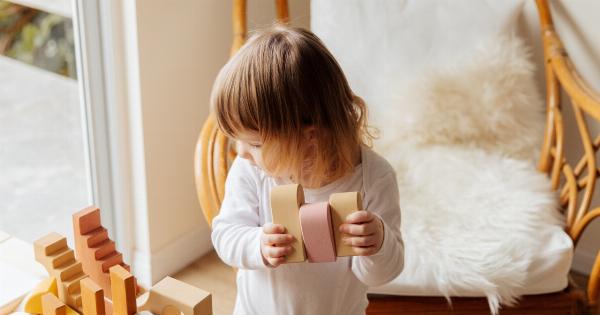Developing your infant’s self-esteem is important for their overall well-being and future success. Self-esteem refers to how a person feels about themselves and their abilities.
By nurturing your child’s self-esteem from a young age, you can help them develop a positive self-image and confidence to navigate the world around them. In this article, we will explore various strategies and activities that can aid in fostering your infant’s self-esteem.
Create a Loving and Supportive Environment
One of the foundational elements in developing your infant’s self-esteem is creating a loving and supportive environment. Infants rely on their caregivers for love, comfort, and security.
By providing a nurturing atmosphere, you are laying the groundwork for your child’s self-esteem to flourish.
Show Unconditional Love
Expressing unconditional love to your child is crucial. Make sure to demonstrate your affection regularly through cuddling, hugging, and kissing.
Your consistent displays of love help your infant feel valued and secure, which contributes to healthy self-esteem.
Encourage Exploration and Independence
Supporting your infant’s natural curiosity and promoting their independence are essential for building self-esteem. Allow your child to explore their surroundings in a safe environment.
Encourage them to try new things, even if it means making mistakes. This fosters a sense of autonomy and confidence in their abilities.
Celebrate Achievements and Efforts
Recognizing your infant’s achievements, no matter how small, is vital to their self-esteem development. Praise them for their efforts and accomplishments, encouraging a positive attitude towards their abilities.
Celebrating their milestones will foster a sense of pride and confidence.
Provide a Positive Model
As a parent or caregiver, you serve as a role model for your child. Show them how to handle challenges, manage emotions, and build healthy relationships.
By setting a positive example, you demonstrate healthy self-esteem to your infant, which they can mirror and internalize.
Offer Choices and Encourage Decision-Making
Providing your infant with age-appropriate choices helps develop a sense of autonomy and decision-making skills.
Even simple decisions, such as selecting a toy or picking an outfit, can empower your child and boost their confidence in their ability to make choices.
Encourage Positive Self-Talk
Self-talk is the internal dialogue we have with ourselves. Even though your infant cannot yet speak, you can help shape their internal dialogue by using positive language and affirmations.
Instead of focusing on what they can’t do, emphasize what they can do and reassure them of their capabilities.
Be Attentive and Responsive
Being attentive and responsive to your child’s needs helps build a secure attachment, which is crucial for developing self-esteem. When your infant feels seen and heard, they perceive themselves as important and valuable.
Foster Social Connections
Creating opportunities for your infant to engage with others provides a foundation for developing social skills and self-esteem.
Arrange playdates, join parent-baby groups, or participate in community activities where your child can interact with peers and experience positive social interactions.
Acknowledge and Respect Emotions
Validating your infant’s emotions and being empathetic towards their experiences promotes healthy emotional development and self-esteem.
Let your child know it’s okay to feel a range of emotions and help them navigate through challenging feelings.
Conclusion
Developing your infant’s self-esteem is an ongoing process that requires love, support, and guidance.
By creating a nurturing environment, celebrating achievements, promoting exploration and independence, and providing a positive model, you lay the foundation for your child’s healthy self-esteem. Remember to be attentive, foster social connections, and acknowledge their emotions. Through your efforts, you will help your infant develop a strong sense of self-worth and confidence to face the world.































